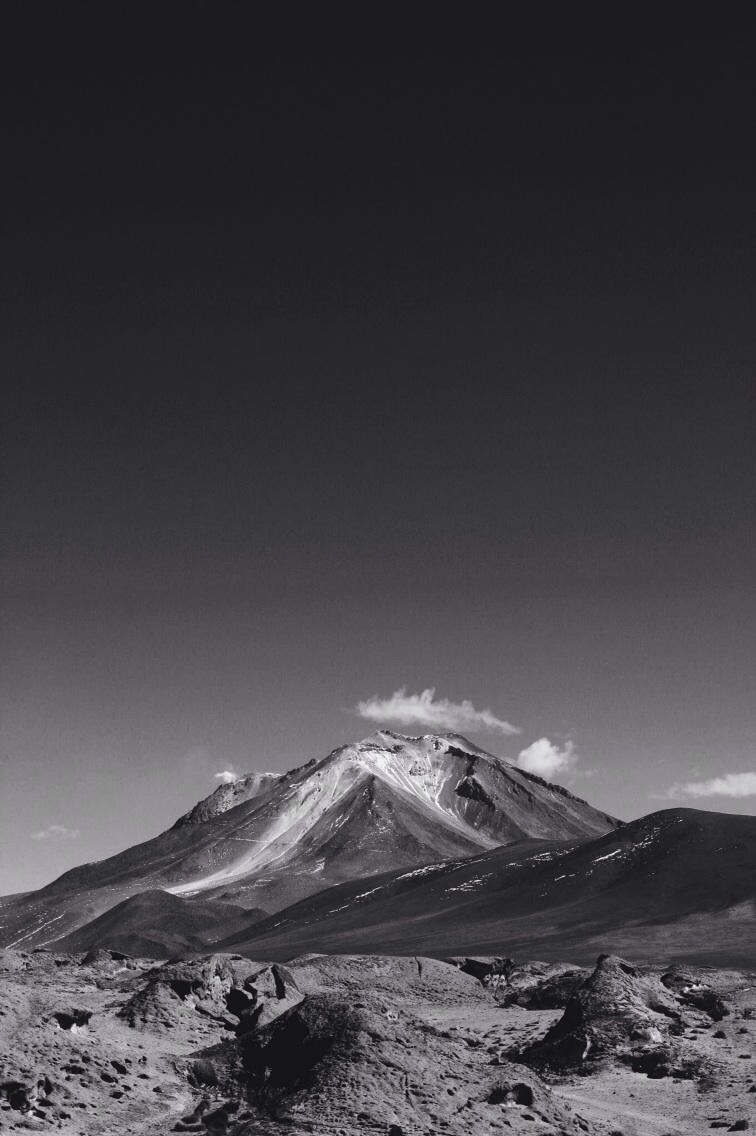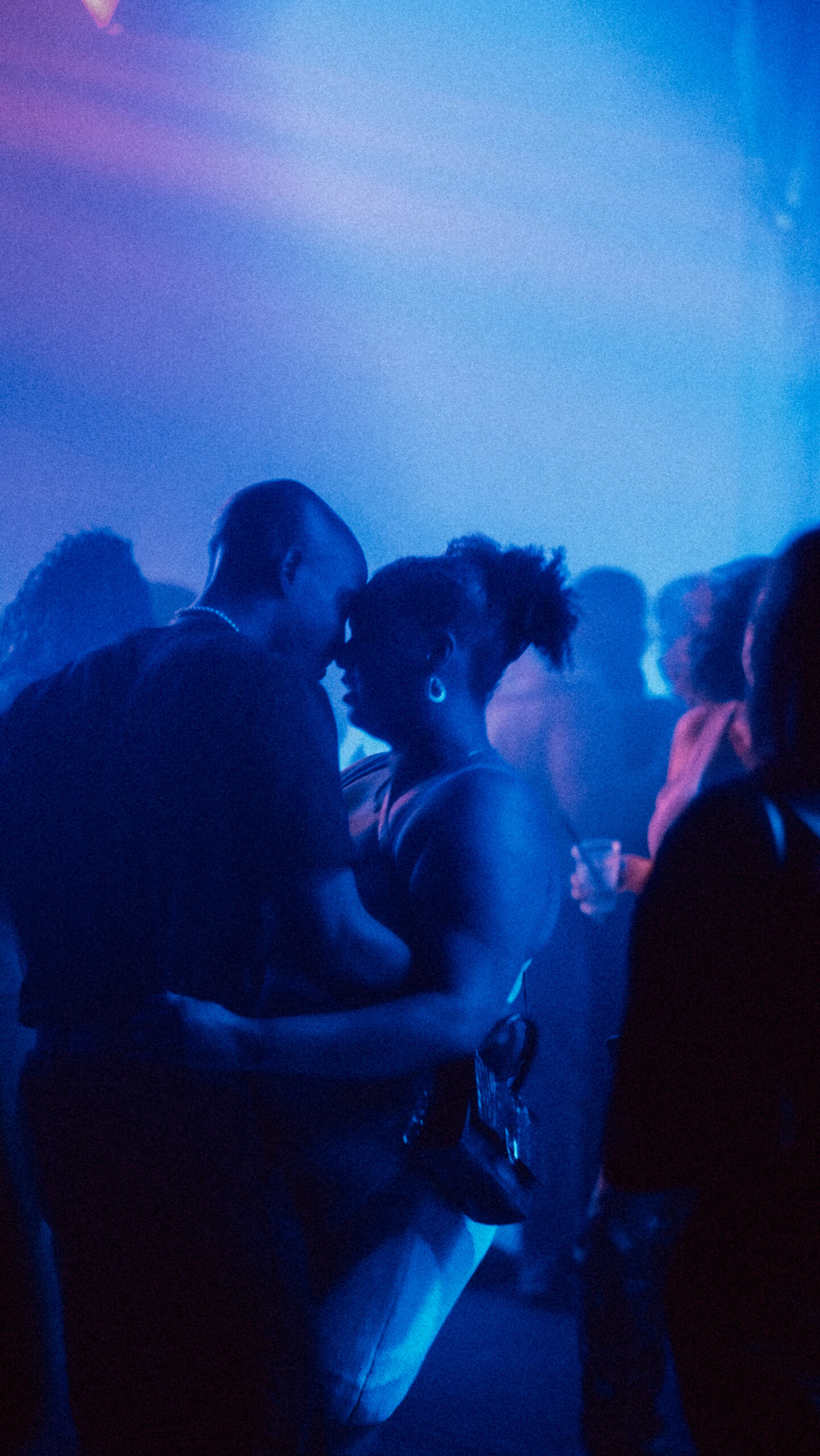
When Helmi Okpara moved to Lesotho she felt whole. Gone were the stares, the awkward side glances she had felt as a child. She had arrived at a place where race no longer consumed everything in its wake. Her bald head did not have a deeper political meaning. It was simply a haircut – an aesthetic choice. Her images were not those of an outspoken black photographer. Rather, simply the photographs created by a talented young woman. And her voice. It was not one burdened with the representation of a whole race. It was hers. An expression of her own views on humanity.
Finally, she was not ashamed of being black.
Encapsulating what many young women of colour have thought but never said, Helmi candidly opened up about her issues as a teen: specifically a teenage girl with black heritage, in a school which was primarily white. Where the western ideals of beauty were amplified by the media, telling her “look – this is what beautiful is” and “you my friend are not”, she admitted to longing to be white “or at least lighter”.
At only 19 years old, Helmi’s images carry a force beyond her years. They are shaped by a childhood and adolescence in which she struggled with her identity as a mixed-race girl, her preference for her mixed-race French mother’s pale freckles to her Nigerian father’s complexion tormenting her. It is a guilt that she wishes to prevent other young girls from feeling.
No longer content with her photography in music and fashion she sought to help change the accepted norms of beauty. From the age of 12, her goal had always been documentary photography, specialising in war. And that is precisely why she chose to involve herself with the International Citizen Service (ICS) – a UK government-funded development program for 18-25 year olds.
Working alongside ICS Skillshare and the Olympic Youth Ambassadors Programme (OYAP) in Lesotho, South Africa, Helmi encountered the stark honesty of impoverished families, where food and water continuously remains the priority. She found herself assaulted with the western luxury of self-indulgence. The choice that we all have, as westerners, to obsessively focus on appearance; on the new diet/fad/beauty standard that the media is currently bolstering.
Helmi worked in rural areas where the norm for 12-15 year old girls was to marry after primary school, showing that despite primary education, girls were not taught the value of work, tradition still overwhelming change. Yet, with the help of ICS, she facilitated classes that engaged children with topics that are currently affecting their lives and regions, whether it is the wider issue of HIV, or the ins and outs of puberty. The ‘letters of change’ of the young girls now read “knowing how to avoid HIV” and “knowing that breasts are a part of puberty and not a sign of sexual activity”.
These statements provided Helmi with a sense of empowerment unattainable by any self-help book or column. They were the words of true beauty. A beauty undefined by the media, by our preconceptions, or by our insecurities. For her, the journey in Lesotho “wasn’t just about me helping others, but the Basotho people helping me.” She gained an awareness that travel inspires. The notion that Britain is not the world, nor the ultimate definer of models to follow.
Her photographs tell a story of expression. Of facial expressions uncharacterized, uncoordinated and unembellished. They are the frank expressions of humanity. The laughter of children and the wrinkled strife of their elders.
Speaking about her photographs she says:
“I hope that when you see what I saw, you feel what I felt. I am no great photographer, but the people who surround me on my travels make my job easy. I admire how pure some characters can be. I want to be a photographer because I enjoy being a tiny part of the moments people create. Academically, I am not gifted, so if I read a good book I’d struggle to explain it to you, but if I take a photo, sometimes it doesn’t need explaining.”
Now it’s not to say that Instagram accounts like Helmi’s have transcended the never-ending specificity of beauty, the stereotypical standardised image we’re all used to seeing daily on magazine covers. But alongside her inspirations such as @sunujournal, @everydayafrica, @theveryblackproject, @amy_sall, @photodre, @lovefola and @oroma_elewa, she has certainly done a good job of trying.
Helmi’s ultimate dream would be to open a museum for the countries of Africa, each country exhibiting their respective art every year and so forth. And, in the foreseeable future, we can expect to see her featured in the Guardian, with an exhibition coming up in October.
Catch her work on Instagram @helmiokpara.









